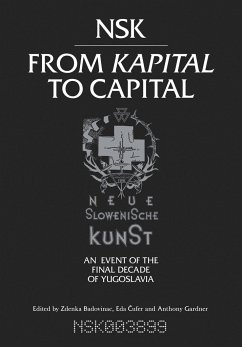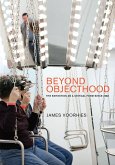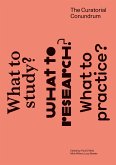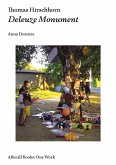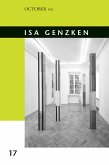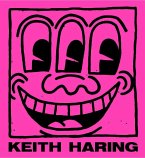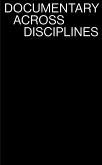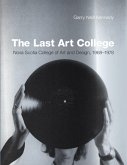The generously illustrated, lavishly documented story of NSK (Neue Slowenische Kunst), the eastern European art collective present at the last revolution of the twentieth century.
This book is the generously illustrated, lavishly documented, critically narrated story of one of the most significant art collectives of the late twentieth century.
In 1984, three groups of artists in post-Tito Yugoslavia the music and multimedia group Laibach, the visual arts group Irwin, and the theater group Scipion Nasice Sisters Theater came together to form the Neue Slowenische Kunst (NSK) art collective.
Adopting the symbols, codes, appearances, and discourses of fascism, nationalism, state power, socialist-realist, and avant-garde art, and pushing the strategies of overidentification and subversive affirmation to their limits, NSK exposed the common foundations of various regimes, systems, and ideologies, while affirming that art and totalitarianism are not mutually exclusive.
Employing music, video, film, exhibitions, writing, graphic design, architecture, theater, and public relations to probe the aesthetic possibilities of declining socialism and proliferating capitalism, NSK introduced an idiosyncratic version of postmodernism (the Retro-Avant-Garde) into the globalizing cultural sphere.
Combining primary documents, period artifacts, critical essays, and contextual notes, NSK from Kapital to Capital documents NSK's collective practice during the final decade of Yugoslavia from the first (and banned) Laibach concert (1980) in a small proletarian mining town in Slovenia to the series of projects launched by individual NSK groups entitled Kapital (1991-92). This illuminating chronicle of NSK's work and its reception is produced in conjunction with the first major museum exhibition devoted to NSK. Designed by Novi Kolektivizem (New Collectivism), the graphic design section of NSK, the cover of each individual copy of the book is printed with a custom detail; no two covers exactly are the same.
Copublished with Moderna Galerija / Museum of Modern Art, Ljubljana, Slovenia.
Contributors
Eda ufer, Goran or evi , Slavoj i ek, Marina Gr ini , Rastko Mo nik, Marina Gr ini , Lev Kreft, Toma Mastnak, Mladen Dolar, Chrissie Iles, Boris Groys, Inke Arns, Alexei Monroe, Catherine Wood, Daniel Ricardo Quiles, Anthony Gardner, Barbara Bor i , Alexei Yurchak, Dejan Kr i , and others
Exhibition
Moderna galerija, Ljubljana: 12 May 17 August 2015
Van Abbemuseum, Eindhoven: March August, 2016
Garage Museum of Contemporary Art, Moscow: Fall 2016
Hinweis: Dieser Artikel kann nur an eine deutsche Lieferadresse ausgeliefert werden.
This book is the generously illustrated, lavishly documented, critically narrated story of one of the most significant art collectives of the late twentieth century.
In 1984, three groups of artists in post-Tito Yugoslavia the music and multimedia group Laibach, the visual arts group Irwin, and the theater group Scipion Nasice Sisters Theater came together to form the Neue Slowenische Kunst (NSK) art collective.
Adopting the symbols, codes, appearances, and discourses of fascism, nationalism, state power, socialist-realist, and avant-garde art, and pushing the strategies of overidentification and subversive affirmation to their limits, NSK exposed the common foundations of various regimes, systems, and ideologies, while affirming that art and totalitarianism are not mutually exclusive.
Employing music, video, film, exhibitions, writing, graphic design, architecture, theater, and public relations to probe the aesthetic possibilities of declining socialism and proliferating capitalism, NSK introduced an idiosyncratic version of postmodernism (the Retro-Avant-Garde) into the globalizing cultural sphere.
Combining primary documents, period artifacts, critical essays, and contextual notes, NSK from Kapital to Capital documents NSK's collective practice during the final decade of Yugoslavia from the first (and banned) Laibach concert (1980) in a small proletarian mining town in Slovenia to the series of projects launched by individual NSK groups entitled Kapital (1991-92). This illuminating chronicle of NSK's work and its reception is produced in conjunction with the first major museum exhibition devoted to NSK. Designed by Novi Kolektivizem (New Collectivism), the graphic design section of NSK, the cover of each individual copy of the book is printed with a custom detail; no two covers exactly are the same.
Copublished with Moderna Galerija / Museum of Modern Art, Ljubljana, Slovenia.
Contributors
Eda ufer, Goran or evi , Slavoj i ek, Marina Gr ini , Rastko Mo nik, Marina Gr ini , Lev Kreft, Toma Mastnak, Mladen Dolar, Chrissie Iles, Boris Groys, Inke Arns, Alexei Monroe, Catherine Wood, Daniel Ricardo Quiles, Anthony Gardner, Barbara Bor i , Alexei Yurchak, Dejan Kr i , and others
Exhibition
Moderna galerija, Ljubljana: 12 May 17 August 2015
Van Abbemuseum, Eindhoven: March August, 2016
Garage Museum of Contemporary Art, Moscow: Fall 2016
Hinweis: Dieser Artikel kann nur an eine deutsche Lieferadresse ausgeliefert werden.
Arguably, the nature of the NSK project makes the contemporary responses the group elicited positive and negative alike as much a part of their work as their records, paintings and theatrical productions. As such, this generous 600-page book has a good claim to be its definitive account, to be coveted by fans and treasured by scholars. Art Review
Laibach are probably the most politically provocative band on the planet. Founded in Slovenia in 1980, they emerged as the musical wing of the radical Neue Slowenische Kunst (NSK) avant-garde movement. They remain active today, exploring the relationship between art and ideology, pop music and politics. This reader provides fascinating insights into both the band's early musical oeuvre and NSK activities. Times Higher Education
Laibach are probably the most politically provocative band on the planet. Founded in Slovenia in 1980, they emerged as the musical wing of the radical Neue Slowenische Kunst (NSK) avant-garde movement. They remain active today, exploring the relationship between art and ideology, pop music and politics. This reader provides fascinating insights into both the band's early musical oeuvre and NSK activities. Times Higher Education

